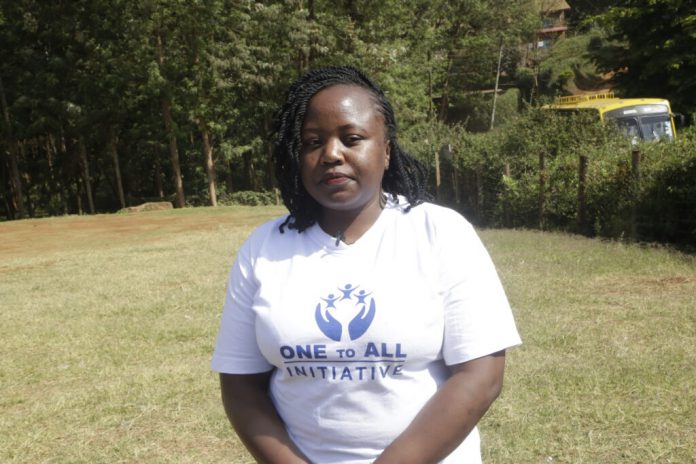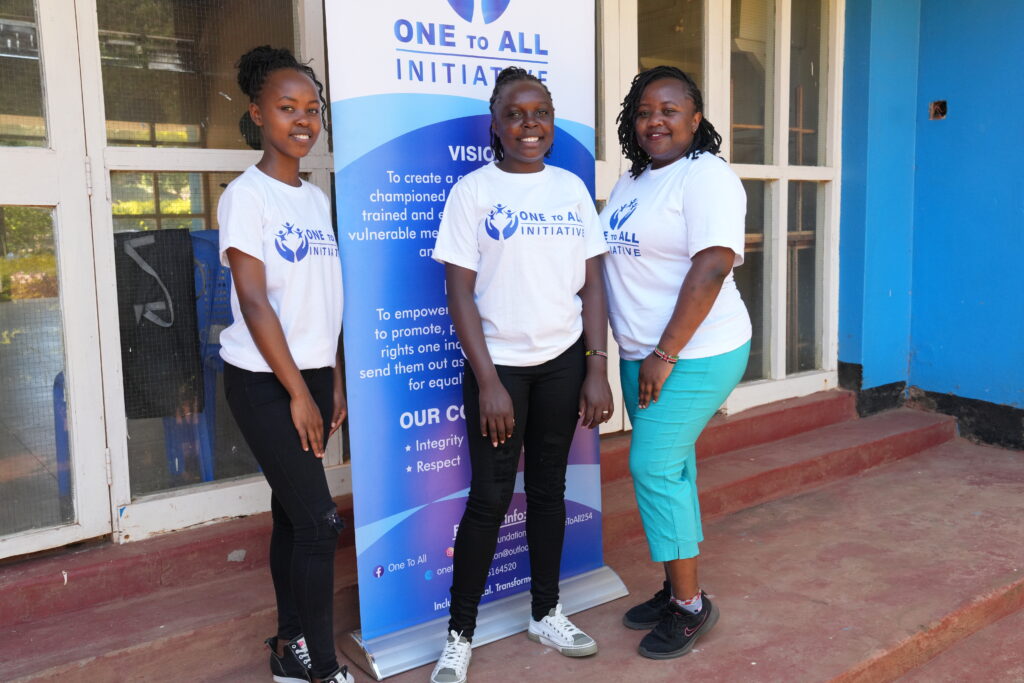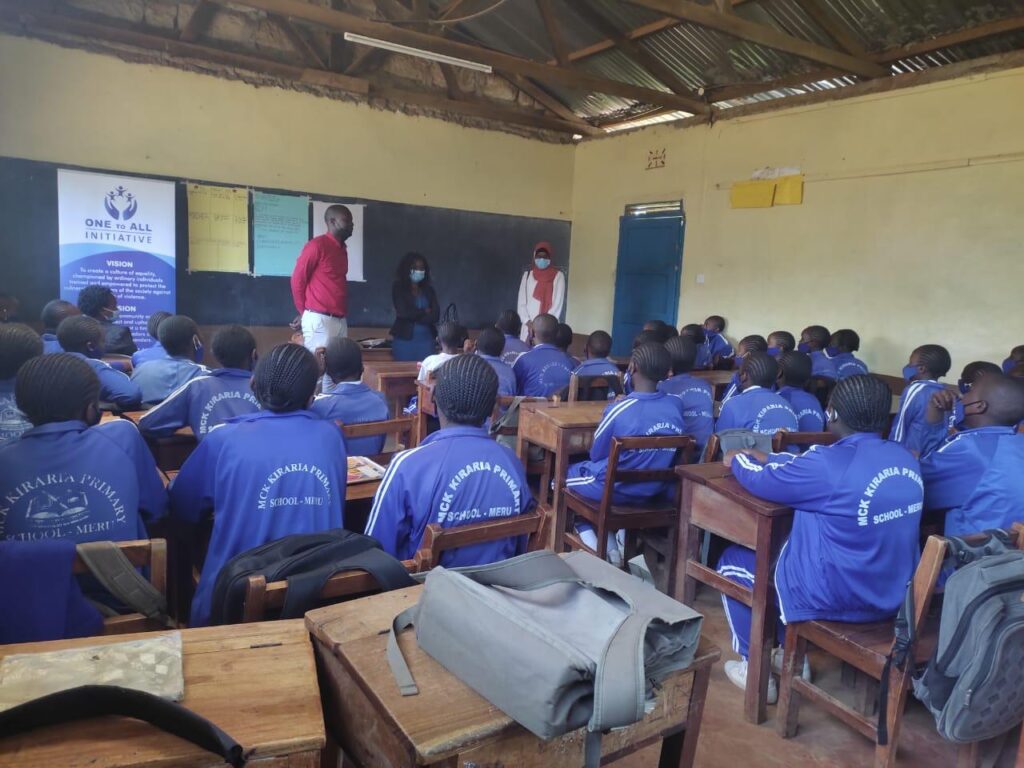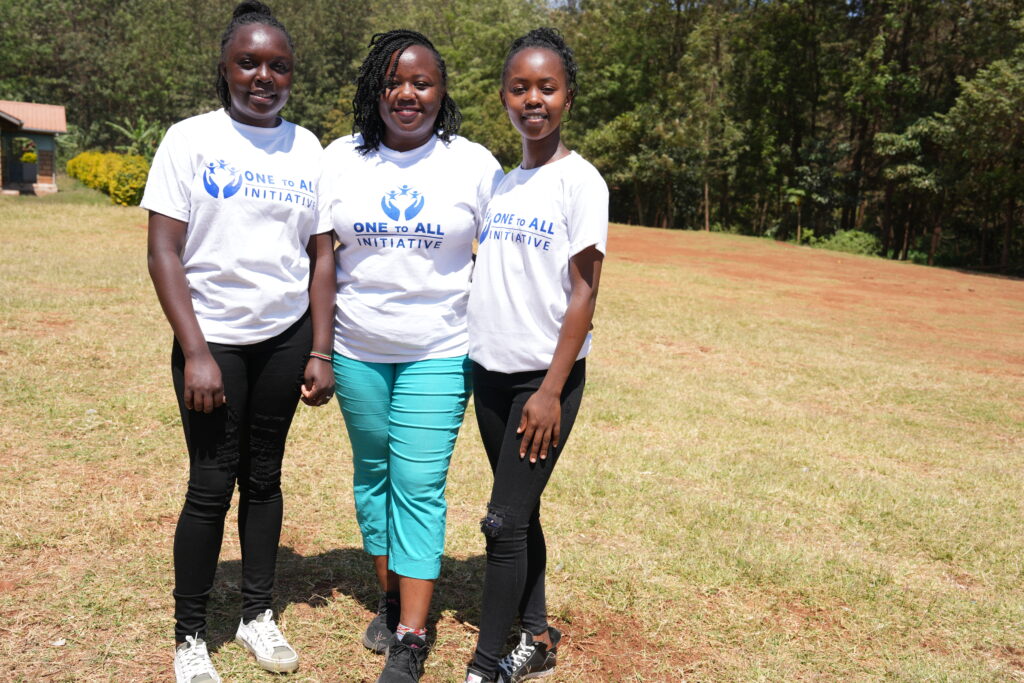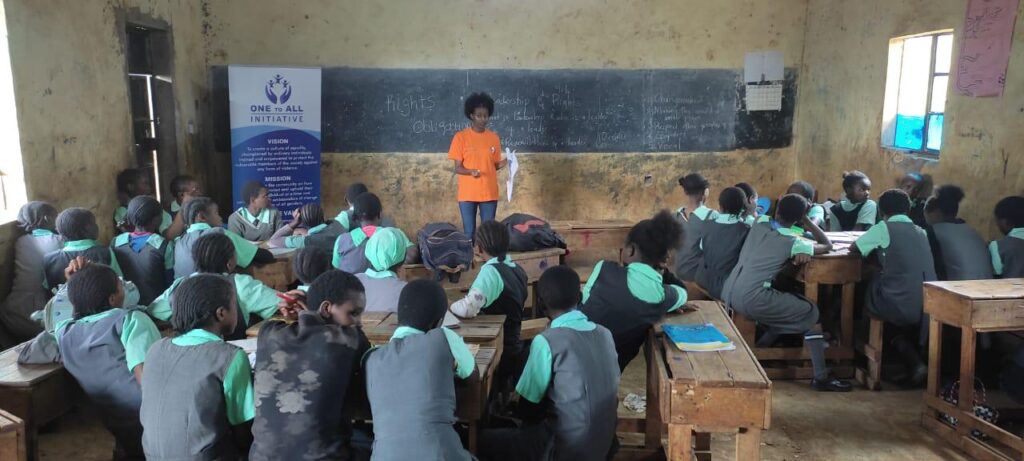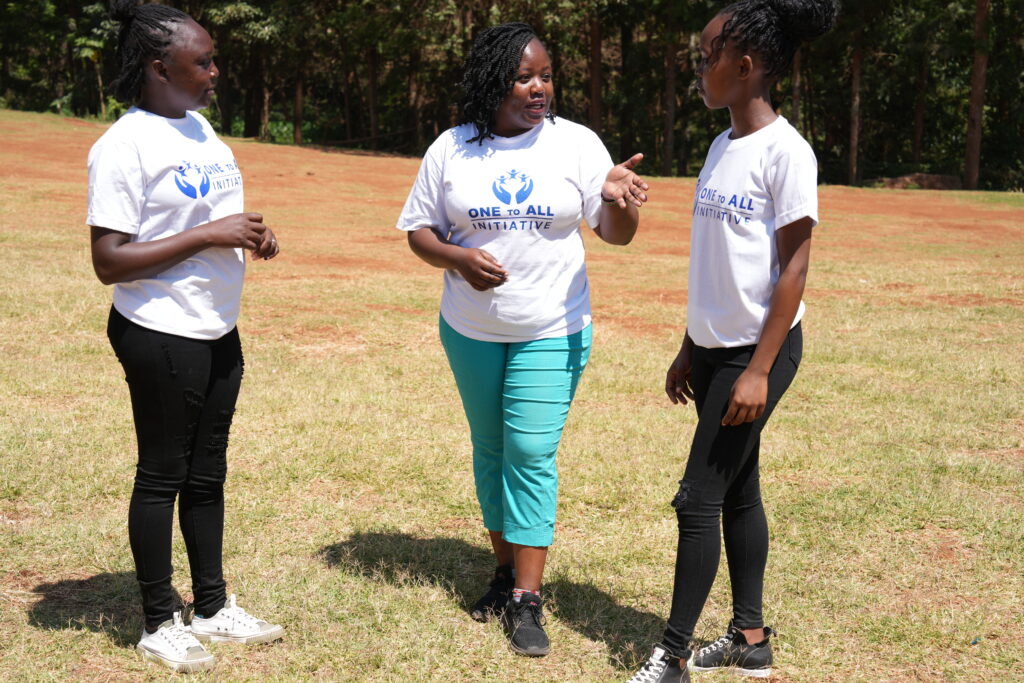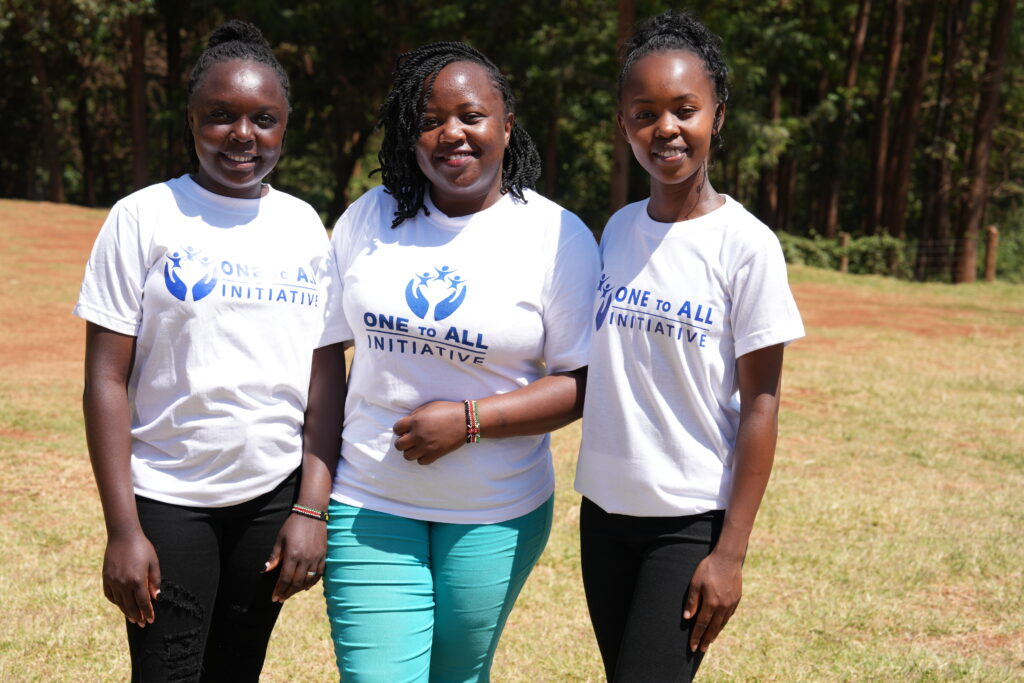NAIROBI Kenya, Oct 26 – Violence against women and girls is a serious issue worldwide, affecting every country and culture.
While most societies claim to oppose this violence, many communities, often ignore it or let it slide.
In Kenya, sexual and gender-based violence is a common violation of human rights.
It can take many forms, including physical, sexual, psychological, and economic abuse, and it affects people of all ages, races, and backgrounds.
This violence occurs in various places, such as homes, streets, schools, workplaces, and farms.
This writer took a tour of Meru County where like many other communities, the county has recorded many forms of gender-based violence, including wife beating, rape, Female Genital Mutilation (FGM), and early marriages.
Here, we meet Mercy Kendi Muthomi, a 28-year-old youth and founder of the One to All Initiative.
The program trains women, girls, and boys about gender-based violence and personal development.
Muthomi, an alumnus of the Young African Leaders Initiative (YALI), has teamed up with various schools in Meru County to empower over 200 girls and young women.
She educates them about the impacts of gender-based violence (GBV), early marriages, and female genital mutilation (FGM), as well as how to prevent and report these issues.
Muthomi notes that the rising rates of GBV in the area prompted her initiative, which seeks to raise awareness among all genders about the negative effects of these actions on individuals and the community. Her goal is to help eliminate GBV in Meru.
“It has provided a platform for young men and women to learn about GBV issues, especially since Meru County has a high incidence of such cases. It also teaches leadership development skills in both high schools and primary schools,” Muthomi said.
She emphasized that the initiative empowers young girls to speak out against these problems and helps them develop strategies to cope with challenges in their lives.
She says they have helped about 14 schools educate both boys and girls on how to deal with cases of Gender-Based Violence.
The classes include boys because they play an important role in supporting girls. She emphasizes that everyone needs to help each other reach their full potential.
“We have started a radio station that addresses issues like child abuse, gender-based violence (GBV), and defilement. Our legal aid department offers free services and connects survivors with resources for justice when their rights are violated,” Muthomi said.
She added that the initiative targets both primary and secondary schools to teach students how to deal with GBV, aiming to create lasting change in the future.
She explains that empowering activities mainly take place in schools, where the environment is more controlled and teachers help support children’s development. These activities are conducted twice a term.
Muthomi mentions they have a tailored program for discussions when visiting schools, covering topics like leadership, drug abuse, teenage pregnancy, FGM, early marriage, and gender-based violence, based on each school’s needs.
“The teacher can ask us to focus on a specific topic, allowing us to teach girls and boys separately or together. Boys are included because they play an important role in the growth of girls in society,” she said.
The Initiative has various programs focused on advocacy and community engagement.
These programs aim to educate the community about policies and their effects, encouraging support for the Initiative’s goals.
One program specifically addresses health and well-being, tackling issues like gender-based violence (GBV) and female genital mutilation (FGM).
It helps the community learn how to end these practices and informs women on how to report such incidents.
Muthomi highlights that cultural beliefs make it difficult to share information with both the community and students in schools.
She notes that some people misunderstand the Initiative, claiming it encourages women to disrespect men or become too assertive.
Additionally, Muthomi points out that limited funding has hindered the program’s implementation, and she calls for support from donors and well-wishers.
One to All Initiative: Empowering Women Through Volunteering
The One to All Initiative provides volunteering opportunities for community members who want to raise awareness and create positive change for girls and women affected by violence.
Judy Gatwiri Muruki, a third-year student at Meru National Polytechnic and a volunteer, is passionate about educating her community about the dangers of gender-based violence (GBV) and female genital mutilation (FGM).
She aims to empower young women whose rights are often violated.
“The initiative has boosted my confidence and taught me important values. I can now advocate for myself and am proud to help young girls understand that they can stand up for themselves and speak out against GBV, FGM, and other harmful practices,” Muruki said.
To support young girls, the initiative engages them in schools, encouraging discussions about challenges they face at home or in school.
This creates a safe space for them to open up, learn how to address these issues and advocate for themselves.
Collymore, a volunteer in the initiative, joined the program because she noticed that young girls in the community lack knowledge about handling gender-based violence (GBV), female genital mutilation (FGM), and preventing early pregnancies.
She believes it’s important to educate them about their rights and how to address these issues.
She expressed pride in being part of a team that brings positive change to the community, especially for young girls and women, while also empowering boys to support girls in their lives.
“I want to encourage girls not to be afraid to speak up about their rights. If you ever face any issues, talk to your teachers, who act as your parents at school, and always communicate with your own parents about these matters. Be empowered to speak out against GBV,” Collymore said.
Gender-based violence (GBV) violates human rights and harms productivity, limiting economic growth in the County.
The issue, particularly violence against women and girls, has reached pandemic levels.
It not only affects individuals but also impoverishes families and communities, stunting overall development.
Despite government efforts to address GBV through laws and policies, it remains a significant challenge.
Many Kenyans are regularly exposed to reports of various types of violence, including rape, physical assault, and emotional abuse.
In Meru County, GBV rates and teenage pregnancies are alarmingly high. In 2023, there were 1,468 cases of GBV and 9,500 teenage mothers reported.
One recent incident involved ten girls in Giika, Meru County, who were detained by police for undergoing female genital mutilation (FGM) on August 13, 2024.
Chief Gervase Mucheke revealed that perpetrators were charging up to Sh2,500 per girl, highlighting the secrecy surrounding this harmful practice.
The alleged circumciser was also arrested while performing the procedure.
“This has truly shocked us. We cannot understand why anyone would revert to such a barbaric practice. We have also arrested the woman responsible for performing the procedure,” said Mucheke.
Source: capitalfm

